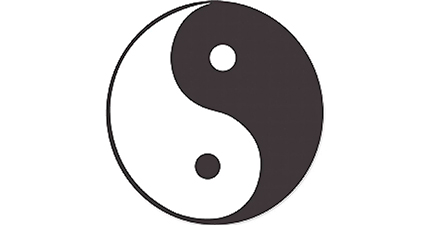I think that there’s a great deal of us who think of Game of Thrones when we think of the sometimes interesting and often irritating game of subverting expectations. Just to be clear, it’s the catastrophe of the ending of the Game of Thrones TV series that we think of. It’s season eight when watching the series made us feel as though the writers were desperate enough to just create a plot that no one could see coming that they were willing to sacrifice a story that made sense.
Why Game of Thrones? Maybe because it was trying to be Tolkien by not being Tolkien. But Game of Thrones is not the only story that tries to subvert expectations and it is not the only story to do so in an irritating manner.
Subverting expectations is not just a meme or a thing that the creators of some television shows try to do. Subverting expectations is about playing with assumptions, assumptions which have real political weight.
The trope of subverting expectations has its roots in realism. Realism is a movement that began in naturalism and dominated in the 20th century. Realism was a type of storytelling that was very much in conflict with stylistic forms, forms such as the fable and the myth. While stories like fables or myths try to pull their listeners in via instruction, treating the listener as though they are a student that the storyteller tries to educate, realistic stories try to do something else. Realistic stories try to recreate complexity without reproducing common sense or judgment. They try to make themselves interesting.
Sianne Ngai writes that the interesting, as an aesthetic category, also has a rational dimension. According to Ngai, the interesting, as opposed to the beautiful, is not revolutionary. The interesting is found “at the border between the common and the specialized, bespeaking a desire to open up the “serious” group founded on the possession of specialized knowledge.” Interesting aesthetics are always exclusive but they work to open exclusive spaces up. They work in “a Habermasian project of expanding the public sphere.”
Subverting expectations and the quest to be interesting or at least realistic has feminist implications but these implications remain implication, never becoming fully bodied meanings. A case to study: the asian hair streak. Asian girl characters are assumed to be conformist and boring. Thus, to subvert this particular expectation, many asian girl characters have a purple hair streak signaling that this asian girl character will not be conformist and boring but interesting and cool. I think that a lot of the characters we take for granted, the female nerd, the femme fatale, have their roots in the practice of subverting expectations. She’s a woman but she’s a nerd. She’s a woman but she’s powerful.
Cool.
There’s also the characters who have yet to be subverted. Where are the lesbians who do not die by the end of the show? The transfemmes with no tragic backstory?
Realism came about in a time, in the 20th century, when postmodern theories tried to do away with grand narratives and big stories about who we are and how to judge who we find ourselves to be. This realism eventually became the voice of a liberal capitalism that tries to encourage us to figure out who we “truly” are inside. The idea is that self inquiry can disrupt the status quo.
Liberal capitalism can’t function without this type of self centered inquiry. It can’t function without the endless but nihilistic disruptions that self centered inquiry provides. This is a distribution logic that produces a ton of waste. Today is sacrificed for today every single day. That’s what happens when change is sold as a commodity.
Liberal capitalism does not treat itself as a status quo but, rather, as an endlessly shifting process of change that saves some people but leaves behind others.
Cue the contemporary angst of trying to not be like the other girls. You might feel this whether you are a girl or not. The height of the 2008 crash, this stage of capitalism trying to find or perhaps create its own savior through the youth, was also a height of irony.
Subverting expectations is not really about the expectation anymore. Subversion itself, even when we lose a sense of what we are subverting or with whom or how, is not a meaningful political position. This is a siding with the small over the large for its own sake, with the nihilistic over the conventional for its own sake, with the cynically tasteful over the idealistically beautiful.
I think we’re sick of it. Feminism is not just about subverting the expectations of gender to find and become a self that is more realistic or interesting. Feminism has its own positive goals.
I feel this today, just looking around. People are interested in authenticity again. We’re getting tired of irony.
Who cares about interesting? We want to feel real.
The game of subverting expectations in popular media is irritating because it’s one of the ways that liberal capitalism tries to get us to adjust to its own vision of society. Have a problem with Captain America as a symbol of the USA’s nuclear weaponry? Let’s make him more realistic. Let’s show everyone his angst, his internal contradictions, his moral neutrality, and his common upbringing. He’s a real guy. Relate to him or not but, never, like some kind of authoritarian, judge him for being who he is.
Taken to the extreme, I think that the game of subverting expectations can lead to ironic bigotry. Queer people are known for our self deprecating forms of humor. It seems like identity formation today takes at least some in group cackling at our own expense. Far too much, in my opinion.
The most sophisticated forms of propaganda don't try to tell you who you are or how you have to be. That would create too much room for doubt. Sophisticated propaganda tells us that there is a people like us. These people who are like us are worthy of representation by the existing political apparatus. The goal of realistic or interesting representation is not to make you more realistic or interesting though that might be a side benefit. The goal is to justify representation as reality while also quieting representation’s critics.
Maybe this would work if representation were not an industry. I don’t know. I just know that it is.
Is democracy really just a marketplace of ideas? An electoral system where you try to find the right representative? Or is democracy the idea that we make and unmake our futures together? American democracy was America’s first stolen idea.
To create adequate democracy, we must be able to critique representative politics. We have to.
What is reality? Reality is social consensus. This isn’t something that can be manufactured by an industry. Reality is something that we create when we come together. Democracy requires decolonization.
I want to be completely unsatisfied with representation. I want for us to have our own positive goals, be willing to be beautiful, be willing to be cliche, and must never strive to be interesting at the cost of what is most common. Our movements must not be only concerned with subverting today’s idea of who we can be for tomorrow. Capitalism doesn’t really care about today. Today is already a waste for a capitalist. Capitalism cares only about tomorrow. It propers in the activity of selling futures, sacrificing today for tomorrow. Who cares if tomorrow is an austere tomorrow or a progressive tomorrow if we don’t know how to be our most mythic selves today?
1 of 188
>>>


